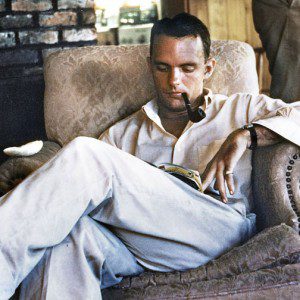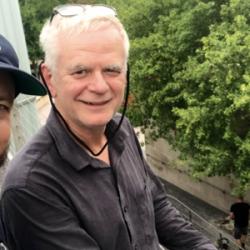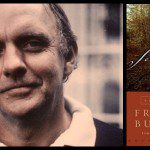 To an achiever (enneagram 3) like myself, a passage like this one calls into question so much of the basic programming of my life, and the way I have chosen to pursue happiness since I was very young. I’m grateful to Frederick Buechner for many reasons, but perhaps the most important is for the way he approaches life … so differently than I, so focused on essential elements of reality, so aware of consequential and ordinary things. We could not be more different people. Perhaps this is why I am so drawn to him. I would have remembered everything about that moment.
To an achiever (enneagram 3) like myself, a passage like this one calls into question so much of the basic programming of my life, and the way I have chosen to pursue happiness since I was very young. I’m grateful to Frederick Buechner for many reasons, but perhaps the most important is for the way he approaches life … so differently than I, so focused on essential elements of reality, so aware of consequential and ordinary things. We could not be more different people. Perhaps this is why I am so drawn to him. I would have remembered everything about that moment.
What Buechner doesn’t acknowledge here in this passage—because he is good—is that this gift is offered constantly to all of us. He had the humility and foresight to accept it. I would have brushed past the offer and bragged to the messenger boy. I pray that my soul is growing young enough to accept a gift like this when it comes my way.
“There was the day I signed the contract for that first novel that I had started in college, for instance. It was a major event for me, needless to say—the fulfillment of my wildest dreams of literary glory. But of the actual signing itself in the offices of Alfred Knopf—who was there and what was said and how I felt—I remember nothing. What I remember instead is leaving the publisher’s office afterwards and running into somebody in the building whom I had known slightly at college. He was working as a messenger boy, he told me. I was, as I thought, on the brink of fame and fortune. But instead of feeling any pride or sense of superior accomplishment by the comparison, I remember a great and unheralded rush of something like sadness, almost like shame. I had been very lucky, and he had not been very lucky, and the pleasure that I might have taken in what had happened to me was all but lost in the realization that nothing comparable, as far as I could see, had happened to him. I wanted to say something or do something to make it up to him, but I had no idea how or what and ended up saying nothing of any consequence at all, least of all anything about the contract that I had just signed. We simply said goodbye in the lobby, he going his way and I mine, and that was that. All I can say now is that something small but unforgettable happened inside me as the result of that chance meeting—some small flickering out of the truth that, in the long run, there can be no real joy for anybody until there is joy finally for us all—and I can take no credit for it. It was nothing I piously thought my way to. I was no conscious attempt to work out my own salvation. What I felt was something better and truer than I was, or than I am, and it happened, as perhaps all such things do, as a gift.”
– Frederick Buechner, The Sacred Journey, p.96-97.
The book, by the way, was A Long Day’s Dying, and it was both a considerable commercial and critical success. Maybe after reading this passage we know why—or at least how.












